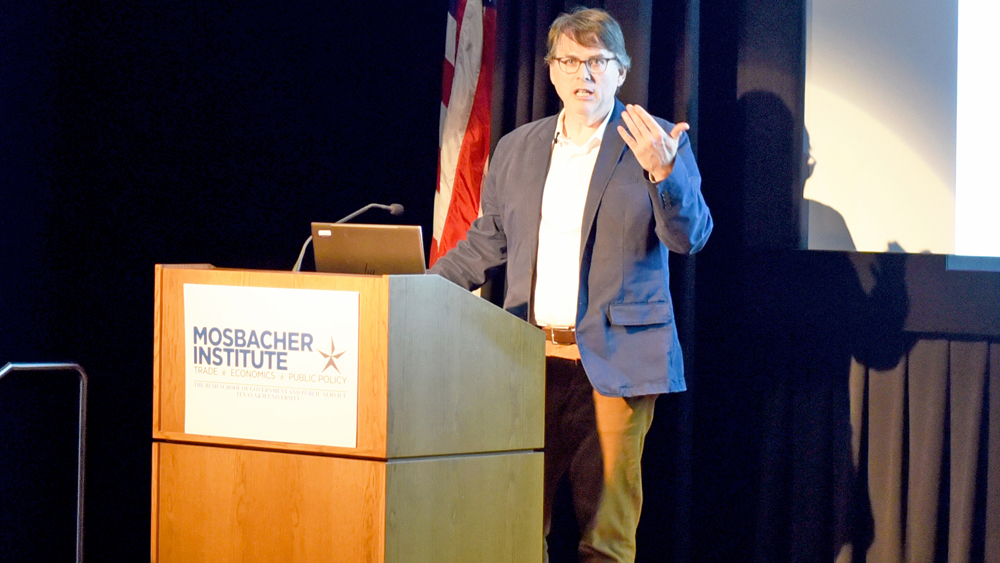
On March 3, 2020, Dr. Thomas Dee, Professor of Education at Stanford University, presented an Education Policy Workshop titled “My Brother’s Keeper? The Effects of Targeted Education Supports” at the George H. W. Bush Presidential Library.
In his talk, Dr. Dee argued that targeted educational programs can have an impact on the educational achievement of participants, as shown by his research on the effectiveness of the African American Male Achievement (AAMA) program in Oakland Unified School District (OUSD), whose centerpiece is the Manhood Development Program (MDP). The program features trained instructors who deliver a culturally relevant curriculum to enrolled students during the school day, and not as a pull-out program.
OUSD grounded its establishment of the AAMA in the theory of Targeted Universalism, which underscores the need for targeted means to achieve universally held social policy goals.
Dr. Dee’s research study found that the AAMA program was highly effective in reducing the drop-out levels of its OUSD students and increasing their on-time high school graduation rates. An important and interesting part of the lecture was Dr. Dee’s explanation of possible confounding effects and all the ways his research study worked to use methods that were valid.
While the program may be effective, Dr. Dee also highlighted a couple of caveats. The AAMA program, though encouraging, likely benefited from the leadership and situation of the Oakland School District. Therefore, expansion into other school districts may be difficult. Second, while the program is embedded within the curriculum of OUSD, it still requires specialized resources that other districts may lack. Dr. Dee concluded that his study and others show good evidence that targeted, culturally relevant supports are effective but cautioned that the ability to promote both high-fidelity implementation at scale and political durability will be critical when trying to recreate like programs in greater numbers.
Dr. Dee’s presentation was based on a 2019 Stanford Center for Education Policy Analysis working paper by the same title.
While in College Station, Dr. Dee had a full schedule. In addition to presenting his evening lecture, he visited the Education Policy class, met with a group of Bush School students with education policy interests, and had meetings with a number of Department of Economics, College of Education, and Bush School faculty members with shared research interests.
The event was hosted by the Mosbacher Institute for Trade, Economics, and Public Policy at the Bush School of Government and Public Service at Texas A&M University. The Institute’s Education Policy Workshop series brings in noted academics, who are invited to discuss their current research to increase the understanding of the research underlying current education policy.
